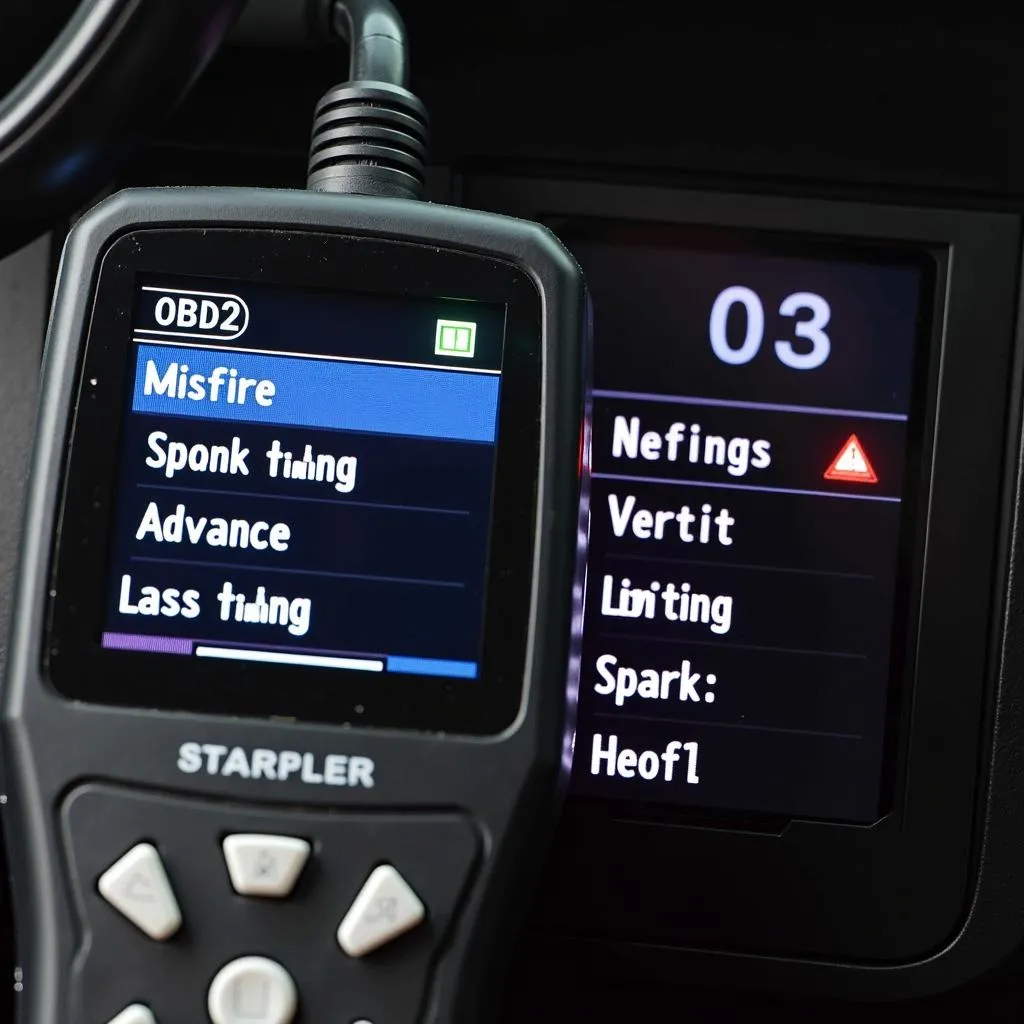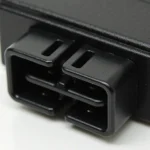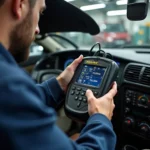OBD2, or On-Board Diagnostics, is a vehicle’s self-diagnostic system. It provides valuable information about your car’s health, including insights into the “spark,” a critical component of your engine’s combustion process. This article delves into the world of “OBD2 spark,” explaining what it means, why it’s important, and how you can use this information to keep your car running smoothly.
Decoding the Spark: The Heart of Your Engine
At the core of your vehicle’s engine lies the combustion process, a carefully orchestrated dance of air, fuel, and spark. The “spark” refers to the electrical discharge generated by the spark plugs, igniting the air-fuel mixture in the combustion chamber. This controlled explosion drives the pistons, ultimately propelling your car.
OBD2 Spark Data: A Window into Engine Performance
Your car’s OBD2 system acts like a vigilant watchdog, constantly monitoring various engine parameters, including those related to the spark. When you connect an OBD2 scanner, you gain access to a wealth of data, with “spark” information often revealing:
- Ignition Timing: This crucial parameter determines the precise moment the spark plug fires in relation to the piston’s position. OBD2 data can reveal if the timing is optimal or if adjustments are needed for better performance and fuel efficiency.
- Misfires: A misfire occurs when the air-fuel mixture fails to ignite properly. OBD2 scanners can detect misfires, pinpoint the affected cylinder(s), and even provide insights into the potential causes, such as faulty spark plugs, wiring issues, or fuel delivery problems.
- Spark Duration: This refers to the length of time the spark plug fires. While not always directly accessible via OBD2, some advanced scanners can provide this data, helping diagnose issues like weak sparks or ignition coil problems.
 OBD2 Scanner Diagnosing Spark Issues
OBD2 Scanner Diagnosing Spark Issues
Why OBD2 Spark Information is Crucial
Understanding your car’s spark performance through OBD2 data is not just for mechanics; it empowers you as a car owner to:
- Identify Issues Early: Detecting spark-related problems early on can prevent costly repairs down the road. For instance, consistently detecting misfires can save you from a potential catalytic converter failure, a much more expensive fix.
- Improve Fuel Efficiency: Optimal spark timing ensures efficient combustion, directly translating to better fuel economy. By monitoring this data, you can identify if your car’s timing is off and needs adjustment.
- Enhance Performance: Correct ignition timing and strong sparks are crucial for optimal engine power and responsiveness. OBD2 data can help you ensure your engine is firing on all cylinders, literally.
- DIY Troubleshooting: Armed with OBD2 spark information, you can troubleshoot basic spark-related problems yourself. This can be especially helpful for simple fixes like replacing worn-out spark plugs.
Common OBD2 Spark-Related Trouble Codes
OBD2 scanners communicate through a standardized system of Diagnostic Trouble Codes (DTCs). Here are a few common ones related to spark:
- P0300 – P030x: These codes indicate a random or specific cylinder misfire. The “x” is replaced by a number (1-6, etc.) to pinpoint the affected cylinder.
- P0171/P0174: These codes suggest a lean air-fuel mixture, often caused by vacuum leaks or faulty oxygen sensors, which can indirectly impact spark efficiency.
- P0350 – P035x: These codes point to problems with the ignition coil(s), crucial components responsible for generating the high voltage needed for the spark.
Using OBD2 Spark Data Effectively
Simply reading OBD2 codes is just the first step. To use this information effectively:
- Consult Reliable Sources: Cross-reference the codes with reputable online databases or your vehicle’s service manual to understand the specific problem.
- Consider the Context: Analyze the accompanying symptoms. For example, a misfire code coupled with rough idling might suggest a different root cause than a misfire with no noticeable driving issues.
- Don’t Jump to Conclusions: While OBD2 data provides valuable clues, it doesn’t always pinpoint the exact problem. Use it as a starting point for further diagnosis.
OBD2 Spark: A Powerful Tool for Car Owners
OBD2 spark data is a powerful resource for understanding your engine’s health and performance. By learning to interpret this information, you can stay ahead of potential problems, optimize your car’s efficiency, and even tackle basic repairs yourself, saving both time and money in the long run.

